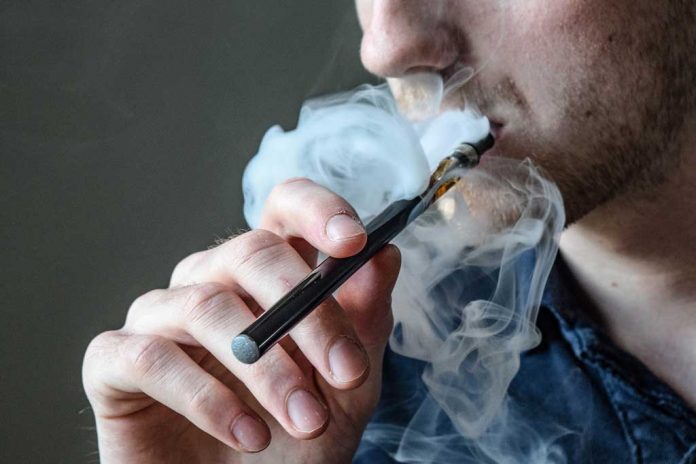
If you are trying to nip the bud and are striving hard to do so, you’re not alone. Approximately seven out of ten smokers say they want to quit smoking, but find it difficult to do so.
Often, an alternative most people turn to is electronic cigarettes to transition from traditional ones. E-cigarettes are battery-based smoking devices, which may or may not contain nicotine.
These e-cigarettes work by heating liquid composed of nicotine, propylene glycol, and glycerine, until it vaporises commonly known as vaping. The vapour of e-cigarettes is less offensive compared with that of cigarettes, however, it also has long term effect on the body.
Dr Michael Blaha from John Hopkins Medicine says, “What’s worse is that many e-cigarette users get even more nicotine than they would from a tobacco product; also you can buy extra-strength cartridges, which have a higher concentration of nicotine, or you can increase the e-cigarette’s voltage to get a greater hit of the substance.”
Are e-cigarettes better than traditional smoking?
Cigarette or e-cigarettes, both are equally harmful to our organs; it diminishes a person’s overall health. The only difference between traditional smoking and e-cigarettes is that the latter may or may not contain tobacco; however innumerable tobacco replicating chemicals are inhaled while vaping.
As e-cigarettes are trending these days in the market, vaping is on the rise, especially among the teens. Research claims that teens are most likely to use e-cigarettes than cigarettes, primarily for the ‘cool quotient’ or with the belief that it is harmless.
What is the negative impact of vaping on your body?
Nicotine consumption through vaping is heavily addictive; it can lead to various health issues. Some of which are:
- Lower brain development
- Affects memory and decreases concentration levels
- Mood swings and attention deficit disorders
- Increase in frequency and intensity of headaches
- Cause irritation and damage to the lungs
If used frequently, vaping may also lead to dehydration. Often, sleeping patterns are impaired due to breathing problems associated with damaged lungs.
Overall, vaping may lead to addiction which may later be difficult to treat. E-cigarettes have cancer-causing chemicals, though lesser than a cigarette, it may increase the risk of cancer.
It is also not easy for one to quit vaping, like any other habit, it will take time. While most of the side effects are temporary, it is necessary to consult a doctor, as the addiction can turn fatal.
Some of the tips to quit vaping may include:
Look forward
E-cigarettes do nothing at all; they do not provide any pleasure. It only keeps you addicted to it. Hence, gaining a positive and healthier approach helps.
Be cool about withdrawal
The withdrawal of harmful chemicals takes the time it doesn’t mean you have to crave for it. Physically, the removal is slight, it quickly passes without causing pain, but mental cravings are harder to deal.
There is no such thing as ‘just one’
Never think having one vape can help you to get over difficult moments; instead, you will find yourself fall for the trap again. Alternatives are to chew sugar-free gum or drink water.
Enjoy freedom
Soon, life will get back to normal, if you begin to feel the urge, try ignoring it by distracting yourself by focusing on a hobby like sketching or writing. Talk to a friend, listen to your favourite music or take deep breaths – talking to a friend will also prove to be extremely beneficial.
Seek professional help, if a person fails to quit despite their maximal efforts.


